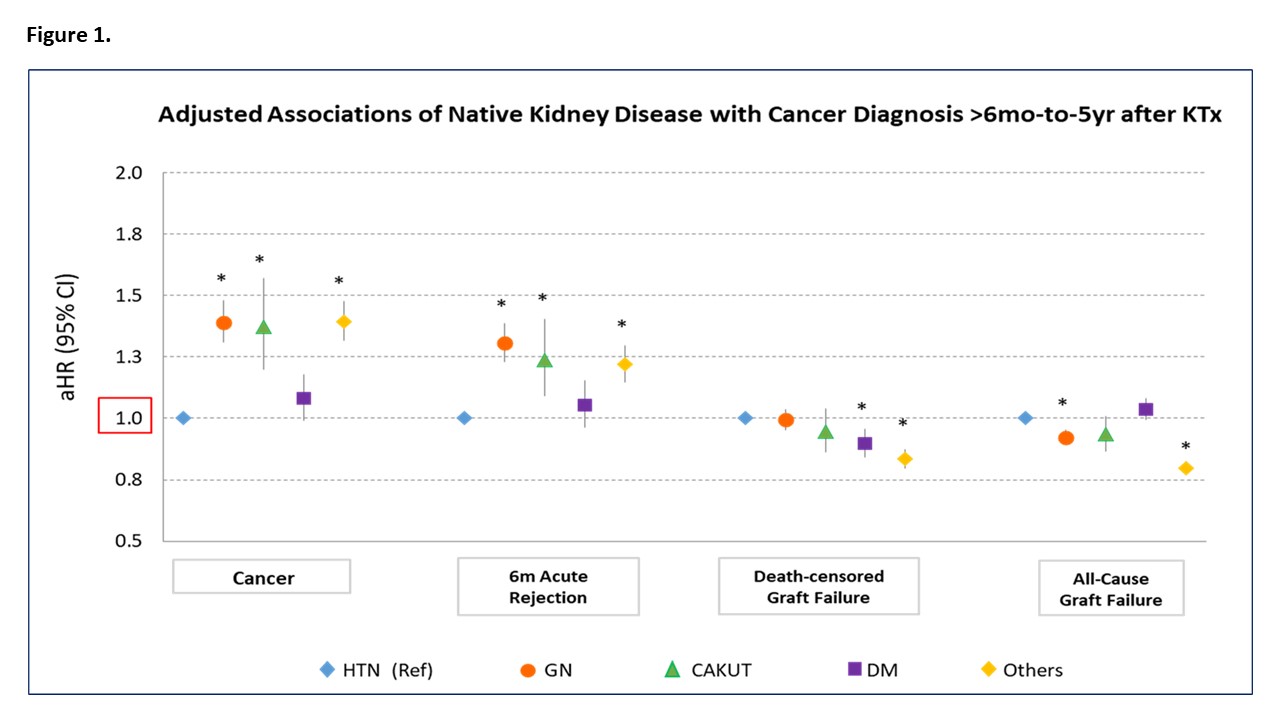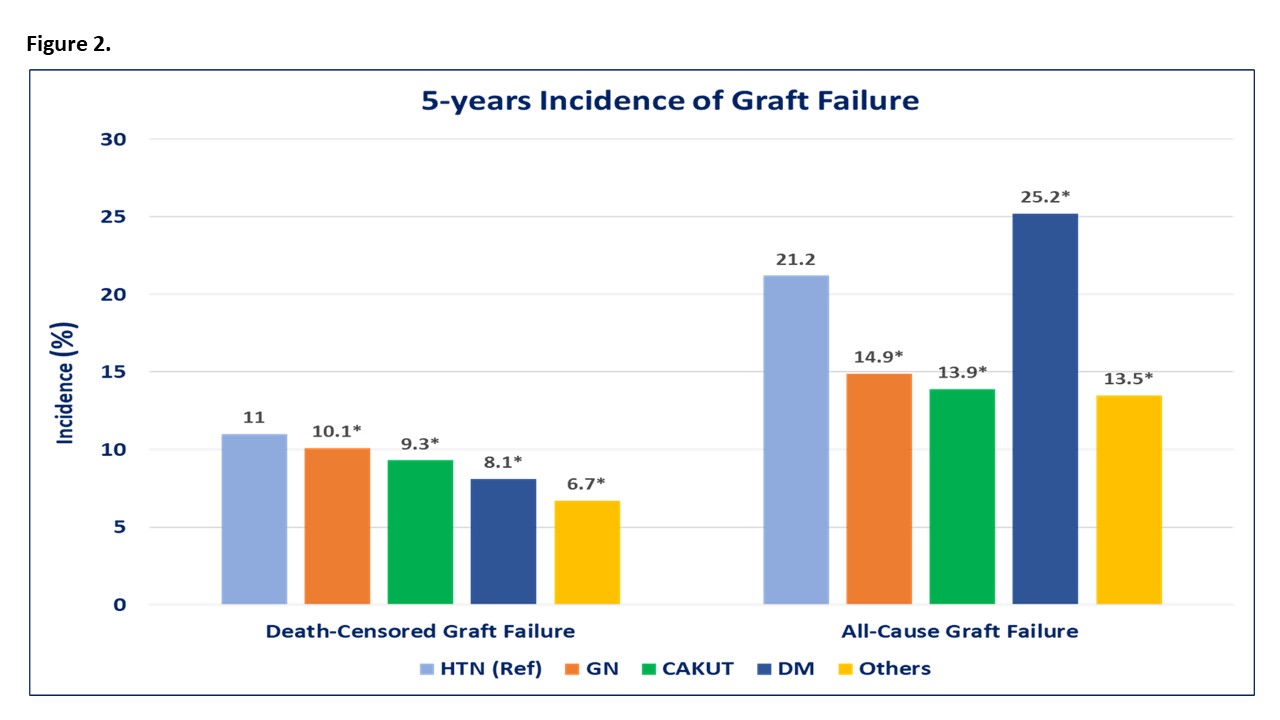Association of Native Kidney Disease with De Novo Cancer Development After Kidney Transplant
1Saint Louis University, Saint Louis, MO, 2University of Iowa, Iowa City, IA, 3Mayo Clinic, Rochester, MN, 4John Hopkins University, Baltimore, MD, 5Washington University in Saint Louis, Saint Louis, MO
Meeting: 2022 American Transplant Congress
Abstract number: 66
Keywords: Kidney transplantation, Malignancy, Nephritis, Renal failure
Topic: Clinical Science » Organ Inclusive » 67 - Non-PTLD/Malignancies
Session Information
Session Name: PTLD and Malignancies
Session Type: Rapid Fire Oral Abstract
Date: Sunday, June 5, 2022
Session Time: 3:30pm-5:00pm
 Presentation Time: 4:40pm-4:50pm
Presentation Time: 4:40pm-4:50pm
Location: Hynes Room 309
*Purpose: Primary glomerulonephritis (GN) and congenital anomalies of the kidney and urinary tract (CAKUT) have been shown to be associated with cancer development in the general population. However, the association between the etiology of kidney failure and de novo cancers after kidney transplant (KTx) needed to be clarified.
*Methods: We examined national Scientific Registry of Transplant Recipients (SRTR) data for adult patients who underwent KTx (2000-2020) to investigate the association of native kidney disease with de novo cancer diagnoses 6 months to 5 years after KTx. Patients with a history of transplant and cancer before KTx were excluded. We identified KTx recipients with hypertension (HTN) (n=68432), diabetes mellitus (DM) (n=79809), glomerulonephritis (GN) (n=54381), CAKUT (n=6508) and others (n=56048) as causes of native kidney disease.
*Results: Compared with the reference HTN group, the GN (aHR, 1.311.391.48) and CAKUT (aHR, 1.201.371.57) groups were significantly associated with a higher risk of new-onset cancers at 6 months to 5 years post-KTx (Figure 1). GN (aHR, 1.231.311.39) and CAKUT (aHR, 1.091.241.40) groups are also associated with a higher risk of acute rejection within the 12 months post-KTx. Regarding graft failure, GN (aHR, 0.890.920.95) and other (aHR, 0.770.800.82) groups have a significantly lower risk of 5-years all cause graft failure compared with the reference group (Figure 2). However, the risk of death censored graft failure was significantly lower in DM (aHR, 0.840.900.96) and other (aHR, 0.800.830.87) groups.
*Conclusions: Etiologies of kidney failure, GN and CAKUT, have been associated with acute rejection and de novo cancers after KTx. Immunosuppressive treatment and cancer screening may need to be modified according to the native kidney disease.
To cite this abstract in AMA style:
Caliskan Y, Axelrod D, Li R, Cheungpasitporn W, Schnitzler M, DeMarco MMcAdams, Ahn J, Alhamad T, Randall H, Bae S, Segev D, Lentine KL. Association of Native Kidney Disease with De Novo Cancer Development After Kidney Transplant [abstract]. Am J Transplant. 2022; 22 (suppl 3). https://atcmeetingabstracts.com/abstract/association-of-native-kidney-disease-with-de-novo-cancer-development-after-kidney-transplant/. Accessed February 22, 2026.« Back to 2022 American Transplant Congress


